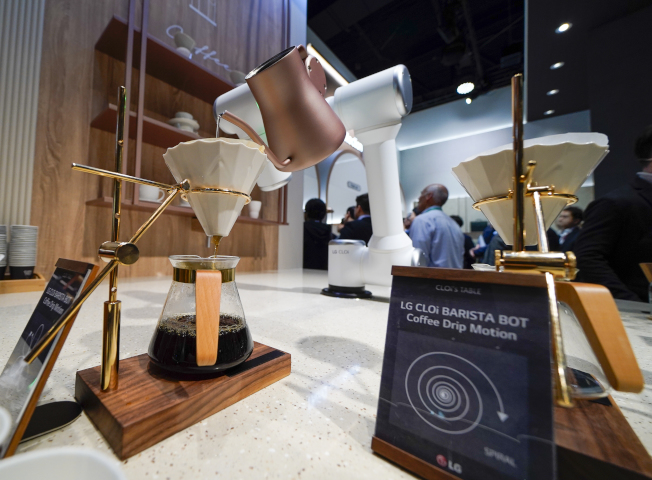Home demand for epidemic prevention has soared, global coffee bean prices have soared
Coffee prices have risen sharply in the past month as the global blockade triggered panic purchases by those trapped at home craving caffeine, but the future of the commodity is uncertain.
Arabica coffee index futures for delivery in New York in May rose 15% from the previous month, trading at about 1.20 yuan per pound on the 16th.

After months of price fluctuations, the price of coffee has risen significantly recently. Coffee prices fell to a low of 97 cents a pound in 2020 on Feb. 5, as the volatile stock market reflected widespread panic about novel coronavirus, but prices have since rebounded. The price of coffee futures on March 25 hit 1.29 yuan, up 30% from its February low.
Maximillian Copestake and Steve Pollard, who work for brokerage Marex Spectron, say that despite the novel coronavirus pandemic pushing up commodity prices, consumer demand for coffee has not wavered.
Kopesmark, executive director of coffee sales in Europe, said: "demand for many other commodities, such as metals or oil, has certainly been greatly reduced, while coffee is not." "" it has changed from one type of consumption to another: from going out to household consumption. "
According to him, coffee roasters, which are sold mainly to coffee shops, bars and restaurants, have been hit "substantially and significantly" in all parts of the country.
However, there has been a marked surge in demand for equipment that allows people to drink coffee at home, mainly through supermarkets, as comprehensive blockades have led to panic purchases.
"people are trying to buy coffee goods and find ways to fill cabinets, so buying continues," Kopesmark said. The pattern of going out to spend has shifted sharply to household consumption. "
He and coffee analyst Pollard point out that consumers' storage of groceries has also contributed to an increase in demand, which in turn has contributed to the growth of coffee roasting.
On the supply side, the shutdown affected the process of selling coffee to consumers, but the production process was not affected, Kopesmark said.
"because coffee is a food, even if a country is blocked, people working in the supply chain are considered indispensable," he said. "so, from a normal point of view, everyone in the supply chain can continue to work and continue to pick coffee, grind coffee, process, package and transport. "
Export routes have also been disrupted since novel coronavirus began to break out at the end of 2019, leading to a Chinese blockade. Coppermark and Pollard warn that transport may become a bigger problem in the long run. "the data show that if you want to export coffee, of course you can export it. But this is deferred data, so even if the status quo is maintained until last week, it is likely to change in the future. "
Other factors also affect coffee prices. Kopesmark and Pollard said a strong dollar suppressed coffee prices throughout the coffee year, which ended in September, as farmers in countries such as Brazil were more willing to sell stocks because of high exchange rates.
"so what is happening now is that futures prices are rising, but their currencies are depreciating sharply, and producers such as Brazilian farmers make a profit by selling forward delivery," they said. "
They stressed that there was a shortage of coffee production stocks in 2019 and 2020, and that the excess stocks of the previous year had been used up. "between now and the end of the year, inventory shortages will become obvious and prices will be rising. "
According to Coppersmark and Pollard, once the novel coronavirus crisis is over and the blockade is lifted, how coffee prices will change, "there is a lot of room for discussion."
"We have no idea whether all the consumption lost by people not going to Starbucks, eating out or drinking coffee can be compensated by the same growth in household consumption," they said. "
"at some point, consumers will start to consume their inventory instead of going to the supermarket," the two experts pointed out. We think this time point may occur in 2020 / 2021. As a result, the extra demand we are seeing now is likely to fade away next year. "
Important Notice :
前街咖啡 FrontStreet Coffee has moved to new addredd:
FrontStreet Coffee Address: 315,Donghua East Road,GuangZhou
Tel:020 38364473
- Prev

Coffee production area of Tanzania: Kililitsu volcano coffee wash has a thick and solid taste
Qianjie-Tanzania is located in Africa and is a small producer of coffee. Coffee has not been planted for a long time, and coffee is also known as Kahawa in Tanzania. The United Republic of Tanzania is an African country located in Africa. It is bordered by Kenya and Laos to the north, Laos, Mozambique and Tanzania to the south, and Laos to the west.
- Next

Coffee health expert: drinking coffee an hour before exercise is just right.
If you want to increase muscle and reduce fat and maintain good posture, not only exercise, diet and nutrition are the key, however, there are many choices of exercise nutritional supplements, are you right? 1 / does drinking whey protein really help increase muscle? Yes. But it only works for people who do weight training. Compared with casein and soy protein, whey protein belongs to the protein with higher absorption rate.
Related
- Unexpected! Ruixing Telunsu lattes use a smoothie machine to foam milk?!
- % Arabia's first store in Henan opens into the village?! Netizen: Thought it was P's
- Does an authentic standard mocha coffee recipe use chocolate sauce or powder? Mocha Latte/Dirty Coffee/Salty Mocha Coffee Recipe Share!
- What is the difference between Vietnam egg coffee and Norway egg coffee? Hand-brewed single product coffee filter paper filter cloth filter flat solution!
- What is the difference between sun-cured and honey-treated coffee? What are the differences in the flavor characteristics of sun-honey coffee?
- How to make Italian latte! How much milk does a standard latte use/what should the ratio of coffee to milk be?
- How to make butter American/butter latte/butter Dirty coffee? Is hand-brewed coffee good with butter?
- Is Dirty the cold version of Australian White? What is the difference between dirty coffee/decent coffee and Australian white espresso?
- Relationship between brewing time and coffee extraction parameters How to make the brewing time fall to 2 minutes?
- Got entangled?! Lucky opens a new store, Mixue Ice City, and pursues it as a neighbor!

